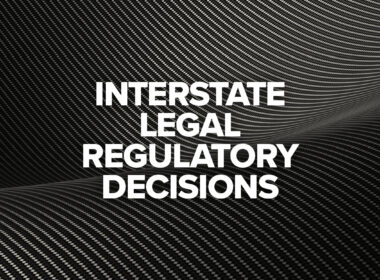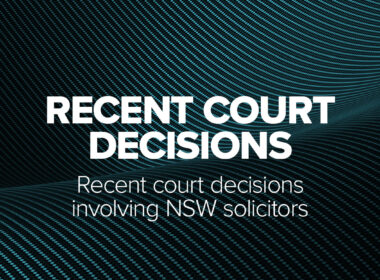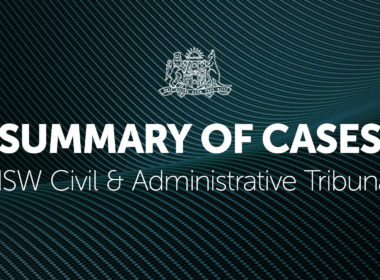The recent case of Bevan v Bingham [2002] NSWSC 863 was a matter before Justice Walton in the Supreme Court involving a dispute between a solicitor and barrister.
The solicitor, Mr Bingham, had engaged the barrister Mr Bevan, to represent his client, Mr Boensch, in proceedings in the High Court upon instructions given by Mr Bingham.
Mr Bingham and Mr Bevan had a costs agreement stating that Mr Bingham would pay Mr Bevan’s costs, conditional upon Mr Bingham recovering Mr Bevan’s fees from either Mr Boensch or the respondent in the High Court proceedings. The costs agreement read:
The Solicitor’s liability for payment of fees under this agreement is conditional upon him recovering the Barrister’s fees from either the client or the respondent to the appeal, Scott Darren Pascoe, to the intent that the Solicitor will only be liable for the Barrister’s fees under this agreement to the extent that one or more of those parties has put him into the necessary funds to pay the Barrister’s fees. However, liability to pay the Barristers [sic] fees is not otherwise dependent upon the success of the proceedings which is the subject of this cost’s agreement.
In that costs agreement, Mr Bevan estimated his fees to be $60,000 plus GST. However, following the grant of special leave from the High Court, Mr Bevan emailed Mr Bingham an updated estimated of his fees to conduct the High Court appeal and enclosed an updated costs agreement. In the updated costs agreement, Mr Bevan estimated his fees to be $31,000 plus GST for completion of the brief from 4 October 2019 to 21 October 2019. Mr Bingham accepted this agreement and continued instructing Mr Bevan to appear.
Shortly after, in December 2019, Mr Boensch was made bankrupt, and Mr Bingham was not able to recover his own or Mr Bevan’s fees. Mr Bevan’s fees were therefore left outstanding.
Mr Bevan sought a costs assessment. The Costs Assessor found that the adding of a further $31,000 plus GST for estimated costs were ‘grossly exceeded in the Costs Applicant’s invoices so that neither cost agreement could be said to properly inform the Costs Respondent of the potential liability for the costs in which the Costs Applicant seeks to have assessed’. The Costs Assessor therefore concluded that the costs agreement was in breach of s 175 of the Legal Profession Uniform Law (NSW) (‘LPUL’), as ‘the estimate given was inadequate for the Costs Applicant to give the Costs Respondent an estimate of what the Counsel’s costs would be’. Neither Mr Bevan nor Mr Bingham contested this finding.
The Costs Assessor subsequently issued a certificate for ‘fair and reasonable costs’ in the amount of $323,715.10 (including interest and filing fee) to be paid to Mr Bevan for his legal work, on the basis that the costs agreement was not a valid costs agreement. Mr Bevan filed the certificate in the Registry and subsequently, a garnishee order was made.
Mr Bingham brought a notice of motion to suspend the garnishee order and set aside the judgement but was unsuccessful. In his judgement, Walton J found:
- The Costs Assessor found that the costs agreement was in breach of s 175 and therefore void pursuant to s 178. Neither party contested this finding, so it was not necessary for his Honour to determine whether this conclusion was correctly reached. The text ‘the costs agreement concerned’ in s 178(1)(a) of the LPUL and ‘a cost agreement that contravenes’ in s 185(1) is a reference to the entirety of the costs agreement and there is nothing to suggest that the costs agreement should be read down to exclude clauses providing for a contingency of payment. In addition, while s 184(5) of the Legal Profession Act 1984 (NSW), stated that “[a] costs agreement may form part of a contract for the provision of legal services,” no such identical or substantially similar provision exists in the LPUL or Legal Professional Uniform Law Application Act (NSW).
- While the Court has a discretionary power under the Uniform Civil Procedure Rules 2005 (NSW) to set aside a judgement or order if there is ‘sufficient cause’ showing the judgement was given, entered or made ‘irregularly, illegally or against good faith’, his Honour did not consider those factors to be made out.
Accordingly, Walton J dismissed Mr Bingham’s motion to suspend the garnishee order and set aside the judgement and costs were awarded to Mr Bevan.
The NSW Law Society considers that Bevan v Bingham is likely to have significant consequences for the NSW legal profession, particularly as prima facie, the voiding of the conditional costs agreement in this case effectively allowed a barrister to benefit from their breach of the LPUL. The Society is carefully monitoring any appeal and will consider if further advocacy is necessary.




